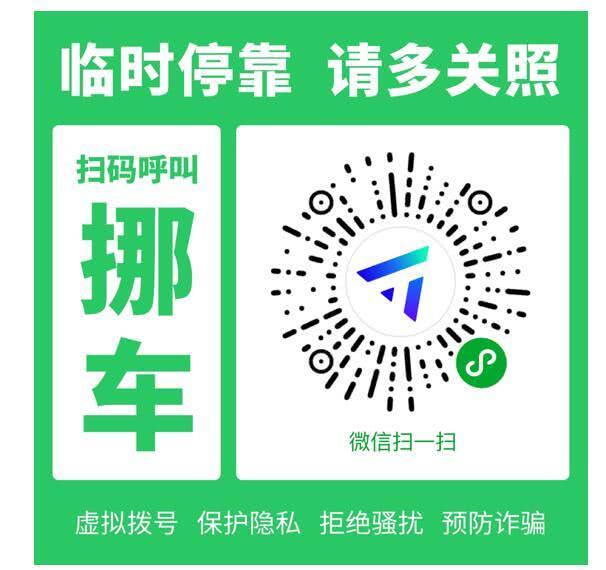Chinese internet giant Tencent has introduced on Thursday a QR code new feature to try to tackle the inappropriate use of parking space afflicting many of its users in China, local media PingWest reported.
The new system, part of WeChat’s ecosystem of mini apps, allows drivers to create a printed parking card with a QR code remitting to the car owner contact, to be placed on one corner of the windscreen.
If a vehicle is parked inappropriately in a wrong lot or is blocking other cars, other users could scan the QR code displayed on the card and contact the car owner. Both parties’ contact information will be hidden during the negotiation to protect their privacy, according to the report.
To obtain WeChat’s parking car, car owners will first need to apply and register their phone number and car plate information on the platform’s mini program, and the card will be sent out on the next day after completing the applications, WeChat says. The firm did not announce if the initiative will be rolled out on a national scale or only in selected cities.

Currently, the typical way for parked car owners is to write their phone numbers on a notification card and leave the card before exiting the vehicle. However, this may increase the risk of giving away private information, which could result in spam phone calls or even frauds in the worst cases.
According to the South China Morning Post, there are less than 0.8 parking spaces for every car in the country, and an even lower number in first- and second-tier Chinese cities. In comparison, developed western countries have a ratio of about 1.3 bays for vehicles.
Official data reported by state media Xinhua indicates that China had 327 million registered motor vehicles by the end of 2018, among which 189 million are private cars.
